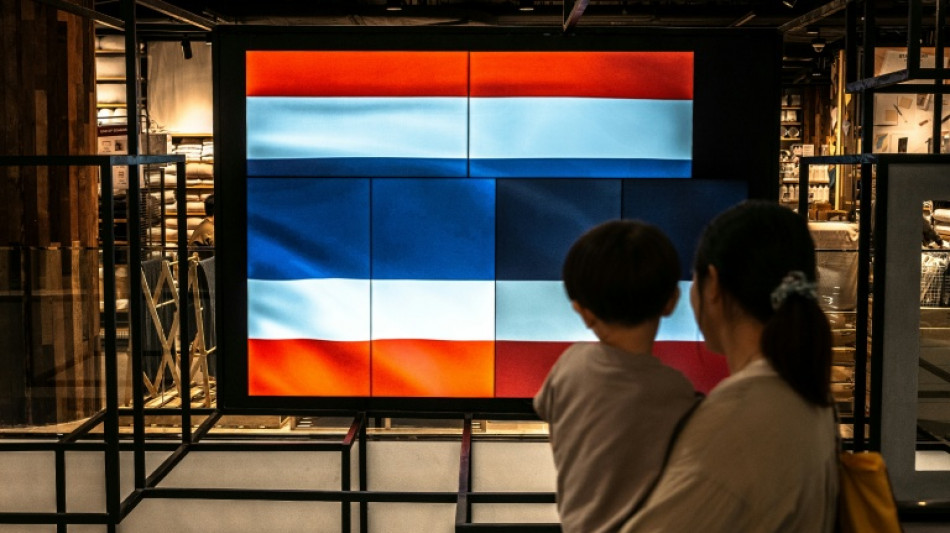
-
 Second seed Fritz ends Canadian hopes at ATP Toronto Masters
Second seed Fritz ends Canadian hopes at ATP Toronto Masters
-
Japan sweats through hottest July on record

-
 Jefferson-Wooden, Bednarek blaze to 100m titles at US trials
Jefferson-Wooden, Bednarek blaze to 100m titles at US trials
-
Son Heung-min to leave Tottenham this summer after decade

-
 Richardson 'domestic violence' drama overshadows US trials
Richardson 'domestic violence' drama overshadows US trials
-
Bid to relocate US Space Shuttle Discovery faces museum pushback

-
 Academics warn Columbia University deal sets dangerous precedent
Academics warn Columbia University deal sets dangerous precedent
-
Sevastova topples Pegula to book date with Osaka, Swiatek advances in Montreal

-
 Former Olympic champion Mu-Nikolayev fails in worlds bid
Former Olympic champion Mu-Nikolayev fails in worlds bid
-
Sensible and steely: how Mexico's Sheinbaum has dealt with Trump
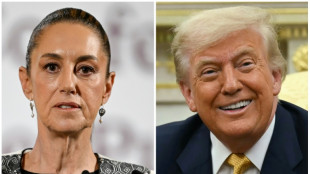
-
 Young leads at weather-hit PGA Wyndham Championship
Young leads at weather-hit PGA Wyndham Championship
-
US sprint star Richardson out of trials following arrest

-
 Rublev, Tiafoe sweat out three-set wins in Toronto
Rublev, Tiafoe sweat out three-set wins in Toronto
-
Ex-porn actor to be Colombian equality minister
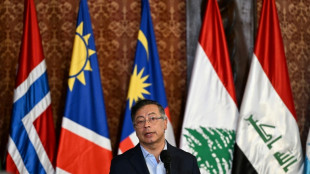
-
 Olympic swim greats Phelps, Lochte, rip US World Championships performance
Olympic swim greats Phelps, Lochte, rip US World Championships performance
-
Brazilians burn Trump effigies as tariffs spark anger
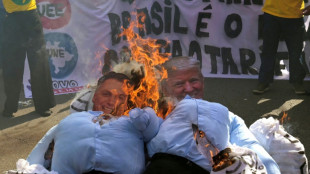
-
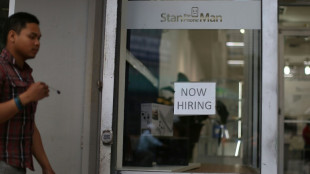 Global stocks fall sharply on weak US job data, Trump tariffs
Global stocks fall sharply on weak US job data, Trump tariffs
-
Lyles, Richardson scratch from 100m at US trials

-
 NFL Commanders win key vote in quest for new stadium
NFL Commanders win key vote in quest for new stadium
-
US Fed governor to resign early at critical time for central bank
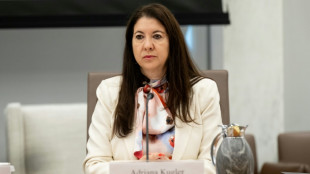
-
 US keeper Turner joins Lyon from Notts Forest, loaned to MLS
US keeper Turner joins Lyon from Notts Forest, loaned to MLS
-
Epstein accomplice Maxwell moved to minimum security Texas prison
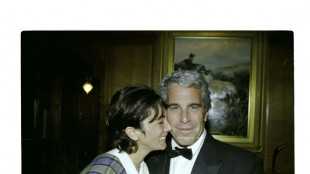
-
 Sevastova shocks fourth-ranked Pegula to book date with Osaka
Sevastova shocks fourth-ranked Pegula to book date with Osaka
-
End of the chain gang? NFL adopts virtual measurement system

-
 Deep lucky to escape Duckett 'elbow' as India get under England's skin
Deep lucky to escape Duckett 'elbow' as India get under England's skin
-
Search intensifies for five trapped in giant Chile copper mine
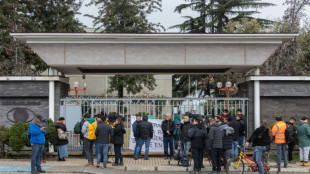
-
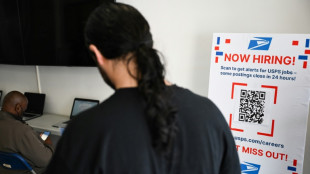 Trump orders firing of US official as cracks emerge in jobs market
Trump orders firing of US official as cracks emerge in jobs market
-
Trump deploys nuclear submarines in row with Russia

-
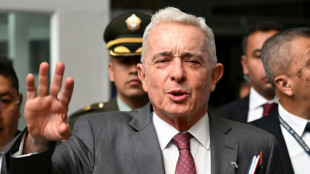 Colombian ex-president Uribe sentenced to 12 years house arrest
Colombian ex-president Uribe sentenced to 12 years house arrest
-
Wave of fake credentials sparks political fallout in Spain

-
 Osaka ousts Ostapenko to reach WTA fourth round at Canada
Osaka ousts Ostapenko to reach WTA fourth round at Canada
-
Rovanpera emerges from home forests leading Rally of Finland

-
 Exxon, Chevron turn page on legal fight as profits slip
Exxon, Chevron turn page on legal fight as profits slip
-
Prosecutors call for PSG's Achraf Hakimi to face rape trial

-
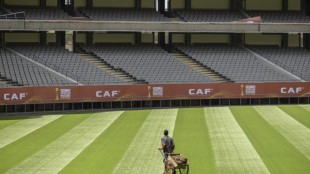 Missing Kenya football tickets blamed on govt protest fears
Missing Kenya football tickets blamed on govt protest fears
-
India's Krishna and Siraj rock England in series finale

-
 Norris completes 'double top' in Hungary practice
Norris completes 'double top' in Hungary practice
-
MLB names iconic Wrigley Field as host of 2027 All-Star Game

-
 Squiban doubles up at women's Tour de France
Squiban doubles up at women's Tour de France
-
International crew bound for space station

-
 China's Qin takes 'miracle' second breaststroke gold at swim worlds
China's Qin takes 'miracle' second breaststroke gold at swim worlds
-
Siraj strikes as India fight back in England finale

-
 Brewed awakening: German beer sales lowest on record
Brewed awakening: German beer sales lowest on record
-
Indonesia volcano belches six-mile ash tower
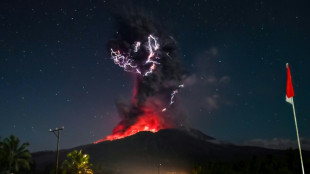
-
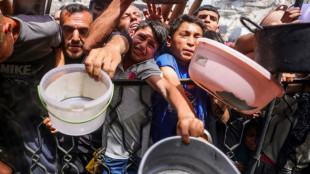 US promises Gaza food plan after envoy visit
US promises Gaza food plan after envoy visit
-
Musk's X accuses Britain of online safety 'overreach'

-
 France says it cannot save contraceptives US plans to destroy
France says it cannot save contraceptives US plans to destroy
-
Russian drone attacks on Ukraine hit all-time record in July
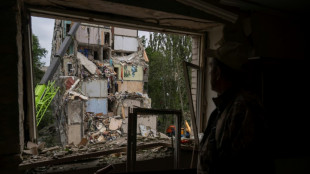
-
 Stocks sink on Trump tariffs, US jobs data
Stocks sink on Trump tariffs, US jobs data
-
Newcastle reject Liverpool bid for Isak: reports

| RBGPF | 0% | 74.94 | $ | |
| CMSC | 0.09% | 22.87 | $ | |
| BCC | -0.55% | 83.35 | $ | |
| CMSD | 0.34% | 23.35 | $ | |
| SCU | 0% | 12.72 | $ | |
| GSK | 1.09% | 37.56 | $ | |
| NGG | 1.99% | 71.82 | $ | |
| RELX | -0.58% | 51.59 | $ | |
| RYCEF | 0.07% | 14.19 | $ | |
| SCS | -1.47% | 10.18 | $ | |
| RIO | -0.2% | 59.65 | $ | |
| BTI | 1.23% | 54.35 | $ | |
| JRI | -0.23% | 13.1 | $ | |
| VOD | 1.37% | 10.96 | $ | |
| AZN | 1.16% | 73.95 | $ | |
| BP | -1.26% | 31.75 | $ | |
| BCE | 1.02% | 23.57 | $ |

Thai-Cambodian cyberwarriors battle on despite truce
Thailand and Cambodia may have reached a ceasefire to halt their bloody border clashes, but cyber warriors are still battling online, daubing official websites with obscenities, deluging opponents with spam and taking pages down.
The five-day conflict left more than 40 people dead and drove more than 300,000 from their homes.
It also kicked off a disinformation blitz as Thai and Cambodian partisans alike sought to boost the narrative that the other was to blame.
Thai officials recorded more than 500 million instances of online attacks in recent days, government spokesperson Jirayu Huangsab said on Wednesday.
These included spamming reports to online platforms and distributed denial of service (DDoS) attacks -- halting access to a website by overloading its servers with traffic.
"It's a psychological war," Cambodian government spokesman Pen Bona told AFP.
"There's a lot of fake news and it wouldn't be strange if it came from social media users, but even official Thai media outlets themselves publish a lot of fake news."
- Disinformation -
Freshly created "avatar" accounts have targeted popular users or media accounts in Thailand.
On July 24, a Facebook post by suspended Thai prime minister Paetongtarn Shinawatra condemning Cambodia's use of force was bombarded with 16,000 comments, many of them repeating the same message in English: "Queen of drama in Thailand".
Another, similar post by Paetongtarn on July 26 was hit with 31,800 comments, many reading: "Best drama queen of 2025", with snake and crocodile emojis.
Government spokesman Jirayu said the attacks were aimed at "sowing division among Thais" as well as outright deception.
Similarly, Cambodian government Spokesman Pen Bona said fake news from Thailand aimed to divide Cambodia.
Apparent bot accounts have also published and shared disinformation, adding to the confusion.
Videos and images from a deadly Cambodian rocket attack on a petrol station in Thailand were shared with captions saying they showed an attack on Cambodian soil.
Other posts, including one shared by the verified page of Cambodian Secretary of State Vengsrun Kuoch, claimed Thai forces had used chemical weapons.
The photo in the post in fact shows an aircraft dropping fire retardants during the Los Angeles wildfires in January 2025.
AFP contacted Vengsrun Kuoch for comment but did not receive a reply.
- Obscenities -
Hackers from both sides have broken into state-run websites to deface pages with mocking or offensive messages.
One of the targets was NBT World, an English-language news site run by the Thai government's public relations department.
Headlines and captions on articles about acting prime minister Phumtham Wechayachai were replaced with obscenities.
Thai hackers meanwhile, changed the login page of Sachak Asia Development Institute, a Cambodian education facility, to show an image of influential ex-leader Hun Sen edited to have a ludicrously exaggerated hairstyle.
The image was a reference to a video -- much mocked in Thailand -- of Cambodian youths sporting the same hairstyle visiting one of the ancient temples that were the focus of the fighting.
Online attacks -- whether disinformation messaging or full-blown cyber strikes to disrupt an adversary's infrastructure or services -- are a standard feature of modern warfare.
In the Ukraine conflict, Kyiv and its allies have long accused Russia of state-backed cyberwarfare, disrupting government and private IT systems around the world.
And earlier this week, Ukrainian and Belarusian hacker groups claimed responsibility for a cyberattack on Russia's national airline that grounded dozens of flights.
Jessada Salathong, a mass communications professor at Thailand's Chulalongkorn University, said the border clashes had invoked the full spectrum of information disorder, carried out by both sides.
"In an era when anyone can call themselves media, information warfare simply pulls in everyone," he told AFP.
O.Salim--SF-PST
